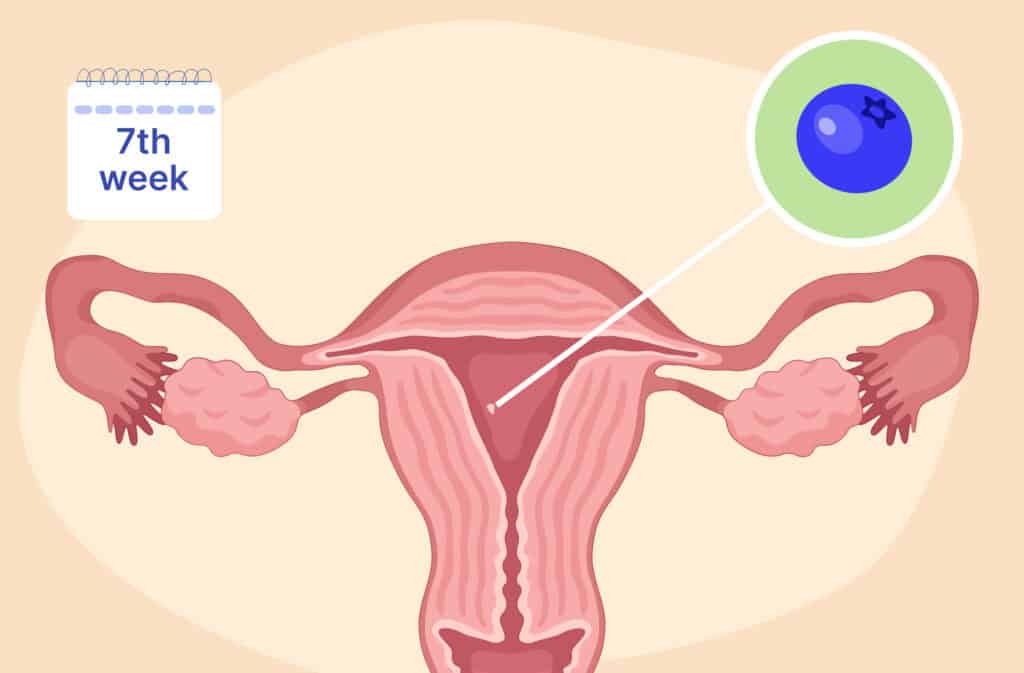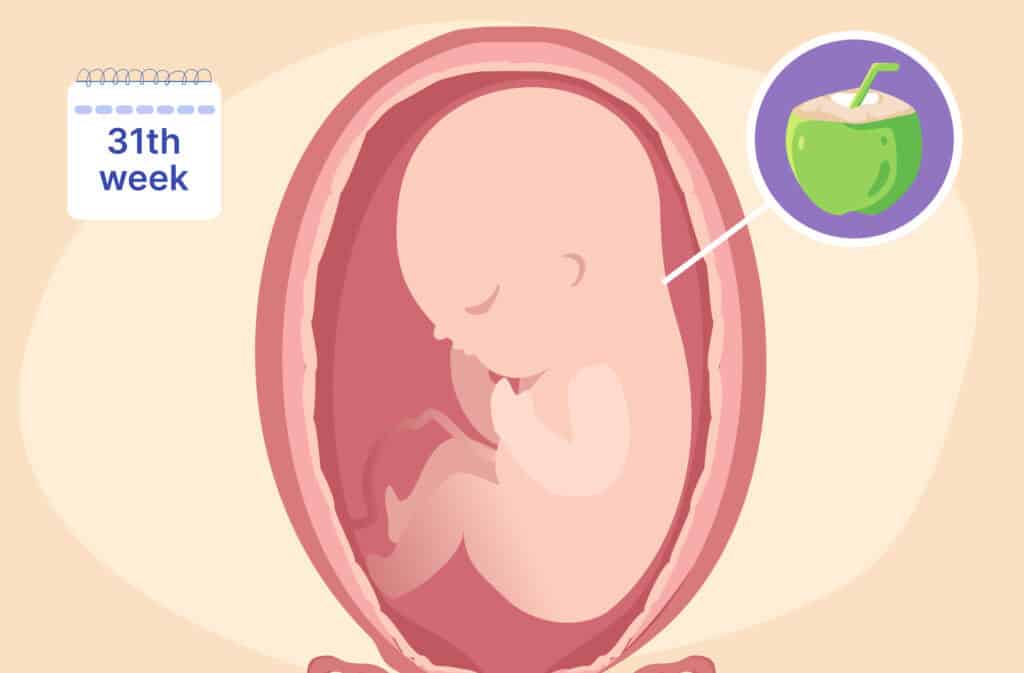Femia > Health Library > Your cycle > Health > PCOS diet: Best foods, meal plans, and tips for managing PCOS symptoms and weight loss
PCOS diet: Best foods, meal plans, and tips for managing PCOS symptoms and weight loss

- Updated Feb 11, 2025
- Published
CRAFTED BY HUMAN
Crafted by human At Femia, we provide accurate and up-to-date information at every stage of your journey, from trying to conceive, pregnancy and postnatal support. All content is created by a real person based on in-depth research and own professional experience. Femia ensures that you will receive expert advice, strict accuracy and a personalized approach from our authors/medical experts. Learn more about our editorial policy.
FACT CHECKED
Fact checked At Femia Health, we maintain the highest standards of editorial excellence in delivering content focused on helping you conceive, guiding you through pregnancy, and supporting you postpartum. Explore our content review principles to learn how we ensure the accuracy and quality of our health and lifestyle tips for every stage of your journey.
A PCOS diet can help to alleviate some symptoms of polycystic ovary syndrome (PCOS). With a PCOS diet, you increase your intake of fresh fruits and vegetables, lean proteins, whole grains, and healthy fats. Not only can this help you lose weight, it may also help your body process insulin and reduce inflammation.
Polycystic ovary syndrome (PCOS) is a common endocrine disorder affecting over one in ten women of reproductive age. While diet plays an important role in managing symptoms like insulin resistance, chronic inflammation, and metabolic dysfunction, it is not a standalone treatment. Effective management often requires medication, such as oral contraceptives to regulate cycles or anti-androgens for hirsutism.
A PCOS diet tailored to individual needs can support metabolic health, help control weight, and alleviate symptoms. Emphasis should be placed on limiting high-glycemic foods to manage insulin levels and inflammation. However, dietary changes should be part of a comprehensive approach, including medical treatment and consideration of age and coexisting conditions.
Femia helps you understand your symptoms and when to take action
Why diet matters for PCOS
Many women don’t realize they have PCOS until they have difficulty getting pregnant. Symptoms include irregular or missing periods, weight gain, trouble conceiving, excess body and facial hair, thinning hair on the scalp, and acne. However, changing your diet can improve your symptoms and reduce your risk of associated conditions including diabetes, depression, and cardiovascular disease.
Insulin resistance
A 2012 study published in Endocrine Reviews found that women with PCOS are more likely to suffer from insulin resistance. Insulin is a hormone that regulates blood sugar. Insulin resistance means your body no longer responds to insulin as it should, causing high blood sugar. Insulin resistance increases your risk of type 2 diabetes and cardiovascular disease.
For women with PCOS, a diet low in glycemic index, rich in fiber, and limited in simple carbohydrates is particularly beneficial. This type of diet helps regulate insulin levels, which is crucial for managing symptoms, maintaining a healthy weight, and supporting hormonal balance. Meanwhile, hormonal imbalance and excess weight can aggravate your PCOS symptoms and leave you feeling worse.
👉 Find out more: Best age to get pregnant with PCOS: When to start and what you need to know
Inflammatory PCOS
Inflammatory PCOS refers to a form of polycystic ovary syndrome where chronic low-grade inflammation plays a key role in the condition’s development. This inflammation is believed to contribute to insulin resistance, hormone imbalances, and the formation of ovarian cysts. Inflammatory markers like C-reactive protein (CRP) may be elevated in women with PCOS. Managing inflammation through lifestyle changes, such as a healthy diet and regular exercise, can help improve symptoms and reduce the risk of complications like heart disease and diabetes.
Best diet for PCOS weight loss
The best diet for your body and PCOS weight loss is a healthy, nutrient-dense diet rich in whole foods. These PCOS-friendly foods will support metabolism, reduce inflammation, and improve gut health. Here are some food groups to include in your diet:
High-fiber foods for blood sugar regulation
- Whole grains (e.g., brown rice, quinoa, oats)
- Legumes (e.g., lentils, beans, chickpeas)
- Vegetables (e.g., leafy greens, broccoli, carrots)
- Fruits (e.g., berries, apples, pears)
- Nuts and seeds (e.g., almonds, chia seeds, flaxseeds)
- Sweet potatoes (rich in fiber and vitamins)
Lean proteins for sustained energy
- Chicken breast (skinless, lean cut)
- Turkey (skinless, lean cut)
- Fish (e.g., salmon, mackerel, tuna)
- Eggs (a good source of protein and essential amino acids)
- Tofu (plant-based protein)
- Greek yogurt (high in protein and low in fat)
Anti-inflammatory foods to reduce symptoms
- Turmeric (contains curcumin, a potent anti-inflammatory)
- Ginger (known for its anti-inflammatory properties)
- Berries (e.g., strawberries, blueberries, raspberries)
- Leafy greens (e.g., spinach, kale)
- Olive oil (rich in healthy monounsaturated fats and antioxidants)
- Fatty fish (e.g., salmon, sardines, anchovies)
PCOS foods to avoid
Some foods could be making your symptoms worse. Try to limit your intake of:
- Refined sugars
- Processed carbs
- Trans fats
- Junk food
- Red meat
- Alcohol
- Caffeine
Many of these foods are known to cause spikes in blood sugar which may exacerbate your symptoms. Inflammatory foods like red meats and processed foods can worsen inflammation in the body and your associated symptoms. Red meats, processed foods, and caffeine can also further disrupt hormones, leading to more symptoms. You want to avoid foods that will leave you feeling worse.
👉 Find out more: Enhancing fertility naturally: A guide to fertility supplements and foods for women
PCOS diet plan: Building hormonal balancing meals
It can feel overwhelming to overhaul your diet, but it could make a huge difference to your symptoms. Consider the food types listed above when planning your PCOS meals. Ensure you have a mix of protein, fiber, and carbs to provide nutrients and fill you up. You want to aim for foods that are fresh and minimally processed.
Sample PCOS meal plan
Take a look at the following PCOS meal plan for inspiration:
| Breakfast | Snack | Lunch | Dinner | |
|---|---|---|---|---|
| Monday | Overnight oats topped with fresh berries, nuts and seeds | Vegetable crudites with homemade guacamole | Smashed avocado on whole-grain toast | Bean and vegetable chili with brown rice |
| Tuesday | High-fiber muesli | Whole grain pitta with hummus | Chickpea salad in a wholegrain wrap | Tofu, vegetable and peanut stir fry with noodles |
| Wednesday | Chia seed pudding with fresh berries, nuts and seeds | Air-fried chickpeas | Moroccan couscous and chicken salad | Lentil dahl with brown basmati rice |
| Thursday | Apple and linseed porridge | Banana | Buckwheat Mediterranean salad with olive oil dressing | Lemon and herb fish with sweet potato mash and steamed vegetables |
| Friday | Low-fat Greek yogurt topped with fresh fruit, nuts, and seeds | Edamame beans | Tuna and whole grain pasta salad | Chickpea and vegetable curry with brown basmati rice |
| Saturday | Scrambled egg on whole-grain toast | Fruit salad | Pineapple and cashew nut salad | Lentil shepherdess pie topped with sweet potato mash |
| Sunday | Tofu scramble on whole-grain toast | Pineapple slices and low-fat yogurt | Chicken caesar salad | Burrito bowl with kidney beans and brown rice |
How to lose weight with PCOS
Losing weight isn’t easy; you might have to work hard to see results. However, small steps can make a big difference, so get started today. Losing weight is something you can do to help you tackle the infamous PCOS belly. A modest weight loss of 5-10% of your starting weight can significantly improve metabolic health, regulate your menstrual cycle, and enhance insulin sensitivity.
It’s crucial to approach weight loss gradually to avoid stressing your body and to maintain hormonal balance. Focus on sustainable changes, like adopting a low-glycemic diet containing PCOS-friendly foods, staying active, and prioritizing long-term health over quick fixes.
Here are some practical tips to help you lose weight with PCOS:
Practice mindful eating
Often, we are distracted when eating and don’t focus on the foods we consume. Mindful eating is the practice of focusing when we eat.
Try out mindful eating. Don’t scroll, watch TV, or catch up on your emails. There should be no distractions. This is so you can focus entirely on enjoying your food. Pay attention to your food; notice the texture, smell, taste, and appearance.In addition to mindful eating, it’s essential to maintain a balanced diet rich in both macro- and micronutrients. Your meals should provide the necessary nutrients to support overall health and manage PCOS effectively.
A 2019 research review published in Obesity Reviews found that mindful eating promoted weight loss. It’s hoped that mindful eating will eradicate the practice of mindlessly eating empty calories when not hungry.
The practice aims to connect you with the sensations of your body so you can learn to trust your hunger cues again and avoid mindless eating.
Control your portions of food
Weighing your food can be a useful tool for understanding portion sizes, but it’s equally important to focus on choosing foods with a low glycemic index. For example, opt for brown rice instead of white, or oats instead of processed cereals.
Rather than following generic portion recommendations, aim for portions that meet your individual needs, considering factors like age, weight, physical activity level, and any underlying conditions.
Not all foods need to be weighed. A helpful approach is to build your plate with half vegetables, a quarter of lean protein, and a quarter of whole grains. This balance can help minimize insulin spikes and better support your health. If your current portions are larger than needed, reduce them gradually over a few weeks to make the transition sustainable and avoid unnecessary stress.
Make easy food switches
Start by writing a list of the foods you consume over two weeks and identify items you can swap for healthier alternatives. Focus not only on calories but also on the glycemic index of foods. Opt for low-GI options that help stabilize blood sugar levels.
For example, replace white bread with a wholegrain alternative or swap sugary snacks for nutrient-dense options like crudités with hummus or apple slices paired with peanut butter. Incorporating fiber-rich substitutes is key, as fiber helps regulate blood sugar levels and improves overall metabolic health.
When choosing fruits, combine them with a source of protein or healthy fats, such as nuts, seeds, or Greek yogurt. This combination reduces the glycemic load, helping to keep blood sugar levels stable and supporting long-term health.
Reduce your junk intake
Processed foods are often salty, sugary, or greasy and can worsen PCOS symptoms. These foods may cause sharp spikes in blood sugar levels, exacerbating metabolic imbalances. While it’s okay to indulge occasionally, processed foods shouldn’t make up the majority of your diet.
Breaking the habit of relying on processed foods can be challenging because they are cheap and convenient. Start small by replacing junk foods with healthier alternatives. For example, swap chips for nuts or vegetable sticks, and replace sugary drinks with water infused with lemon or other fruits. Gradual changes like these can help you build a more balanced diet while supporting better management of PCOS symptoms.
Include low-glycemic foods in your diet
Low-glycemic foods help avoid blood sugar spikes by allowing for a slow increase in blood sugar levels that the body can handle. These foods include fresh fruits and vegetables, whole grains, legumes, nuts, and seeds. They are rich in fiber and packed with nutrients, making them an excellent choice for overall health.
While fruits generally have a low glycemic index, it’s important to limit those high in fructose, such as grapes or bananas, to avoid glucose overload. Opt for lower-fructose fruits like berries, apples, or citrus, and pair them with protein or healthy fats to further stabilize blood sugar levels.
Increase your exercise
Whether you exercise a few times a week or haven’t worked out in years, the goal is to do more. Try to increase how much you walk daily and add some new workouts to keep you motivated. Exercise can lift your mood, reduce stress, and help you to lose weight.
For PCOS, combined workouts are especially effective. Incorporate cardio exercises, like walking or jogging, alongside strength training, such as bodyweight exercises or weightlifting. This combination can enhance insulin sensitivity, support hormonal balance, and promote better overall metabolic processes.
Don’t give up
A common problem when losing weight is staying motivated. You step on the scales hoping for a significant loss only to find there’s been no change. You feel disheartened and wonder if it was all a waste of effort, and pretty soon, you’re reaching for your favorite comfort foods again. But don’t give up. Keep going. Don’t focus on the numbers on the scale; make improving your health the overall goal.
PCOS nutrition: Vitamins and supplements
A PCOS diet is high in vitamins and nutrients, but you may still want to take a supplement to further increase your intake. The following supplements are beneficial for women with PCOS:
- Magnesium. Magnesium can help your body to process insulin. A 2024 study published in Biological Trace Element Research found that magnesium supplements improved the metabolic profile of women with PCOS by reducing insulin resistance.
- Omega-3 fatty acids. Omega-3 is another supplement that can improve how your body handles insulin. A 2021 article published in the Annals of Palliative Medicine found that Omega-3 supplementation improved insulin resistance in women with PCOS.
- Insoitol. Insoitol supplements can improve your metabolic profile and reduce symptoms associated with PCOS. A 2023 study published in Reproductive Biology and Endocrinology found that inositol supplements were as effective as Metformin, one of the leading medications prescribed to women with PCOS.
- Vitamin D is an important nutrient for women with PCOS, as its deficiency has been linked to increased insulin resistance. Supplementation with vitamin D may help improve insulin sensitivity and support overall metabolic health.
Always consult your healthcare provider before starting supplementation to ensure it is appropriate for your individual needs.
| Important note: Supplements, including inositol, magnesium, and vitamin D, are intended to complement a healthy diet and regular physical activity. They should not be seen as a replacement for primary treatments like medication or lifestyle changes. Always consult your healthcare provider for personalized recommendations. |
Femia helps you understand your symptoms and when to take action
Questions from the Femia community
Is intermittent fasting beneficial for PCOS?
Some people claim intermittent fasting has helped their PCOS, but with this condition, the goal is to maintain steady blood sugar levels throughout the day. As fasting can lead to blood sugar fluctuations, it may not be the best option for everyone with PCOS. If you are considering intermittent fasting, it's important to consult with your healthcare provider to determine if it is a suitable treatment for you.
Additionally, it is advisable to avoid prolonged fasting if it causes extreme hunger or hypoglycemia. Currently, there is no conclusive evidence supporting the benefits of intermittent fasting for all women with PCOS, and its effectiveness may vary depending on individual factors.
What’s the best type of exercise to pair with a PCOS diet?
Any exercise will help to boost your health. Cardio and strength-training are crucial for improving fitness and burning energy. Low-impact activities like yoga and pilates can reduce stress and support weight loss, making them perfect for women with PCOS.
Can diet alone manage PCOS symptoms effectively?
Diet is a great place to start, but there are other lifestyle changes you can make to manage your PCOS symptoms. Exercise, weight loss, stress management, and sleep are all important, too. In some cases, your doctor may prescribe medicine to tackle insulin resistance and improve your symptoms.
The bottom line
Diet is crucial for health. The foods we eat affect the way we feel. PCOS is associated with insulin resistance, weight gain, and metabolic dysfunction, and a PCOS diet could help to improve these issues.
Low glycemic foods help to keep your blood sugar levels stable throughout the day. Opt for plenty of fresh fruits and vegetables, whole grains, lean protein, and healthy fats. Keep processed foods to a minimum. Junk food can cause blood sugar spikes which may exacerbate your symptoms.
Regular exercise can also help keep your PCOS under control. Not only can it help with weight management, but it can also help regulate your hormones. PCOS can put the body under a lot of emotional and physical stress, and exercise can help manage this. Other forms of stress management that might help include getting enough sleep, yoga, and mindfulness.
References
- Bulsiewicz, William J. “The Importance of Dietary Fiber for Metabolic Health.” American journal of lifestyle medicine vol. 17,5 639-648. 12 Apr. 2023, doi:10.1177/15598276231167778 https://pmc.ncbi.nlm.nih.gov/articles/PMC10498976.
- Fuentes Artiles, Ruben et al. “Mindful eating and common diet programs lower body weight similarly: Systematic review and meta-analysis.” Obesity reviews : an official journal of the International Association for the Study of Obesity vol. 20,11 (2019): 1619-1627. doi:10.1111/obr.12918 https://pubmed.ncbi.nlm.nih.gov/31368631/.
- Greff, Dorina et al. “Inositol is an effective and safe treatment in polycystic ovary syndrome: a systematic review and meta-analysis of randomized controlled trials.” Reproductive biology and endocrinology : RB&E vol. 21,1 10. 26 Jan. 2023, doi:10.1186/s12958-023-01055-z https://pubmed.ncbi.nlm.nih.gov/36703143/.
- Melo, Vitoria et al. “Omega-3 supplementation in the treatment of polycystic ovary syndrome (PCOS) – a review of clinical trials and cohort.” Endocrine regulations vol. 56,1 66-79. 18 Feb. 2022, doi:10.2478/enr-2022-0008 https://pubmed.ncbi.nlm.nih.gov/35180821/.
- Randeva, Harpal S et al. “Cardiometabolic aspects of the polycystic ovary syndrome.” Endocrine reviews vol. 33,5 (2012): 812-41. doi:10.1210/er.2012-1003 https://pmc.ncbi.nlm.nih.gov/articles/PMC3461136/.
- Shahmoradi, Shabnam et al. “The Effect of Magnesium Supplementation on Insulin Resistance and Metabolic Profiles in Women with Polycystic Ovary Syndrome: a Randomized Clinical Trial.” Biological trace element research vol. 202,3 (2024): 941-946. doi:10.1007/s12011-023-03744-7 https://pubmed.ncbi.nlm.nih.gov/37393389/.
- Xia, Yidan et al. “Efficacy of omega-3 fatty acid supplementation on cardiovascular risk factors in patients with polycystic ovary syndrome: a systematic review and meta-analysis.” Annals of palliative medicine vol. 10,6 (2021): 6425-6437. doi:10.21037/apm-21-1050 https://pubmed.ncbi.nlm.nih.gov/34237964/.

Discover what’s happening at 7 weeks pregnant, including baby growth milestones, pregnancy symptoms, and how to support your health with diet and care.

Discover what happens at 31 weeks pregnant, from baby development and symptoms to ultrasounds and breathing techniques for labor.

Discover the complete parent’s guide to shaken baby syndrome’s causes, symptoms, prevention, and misconceptions.

